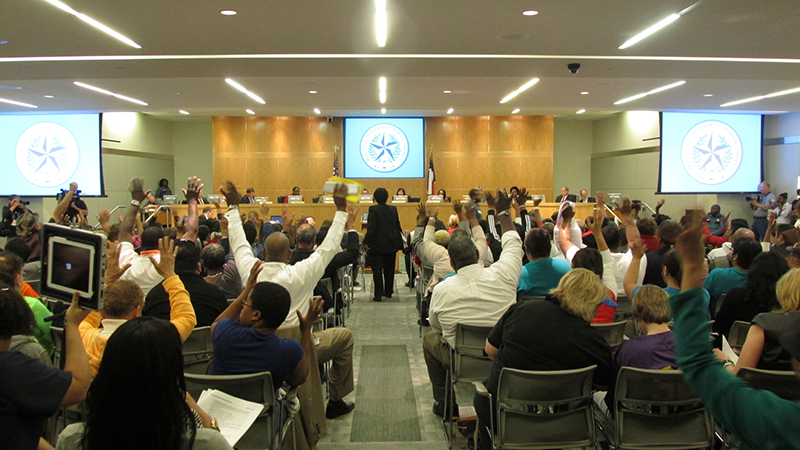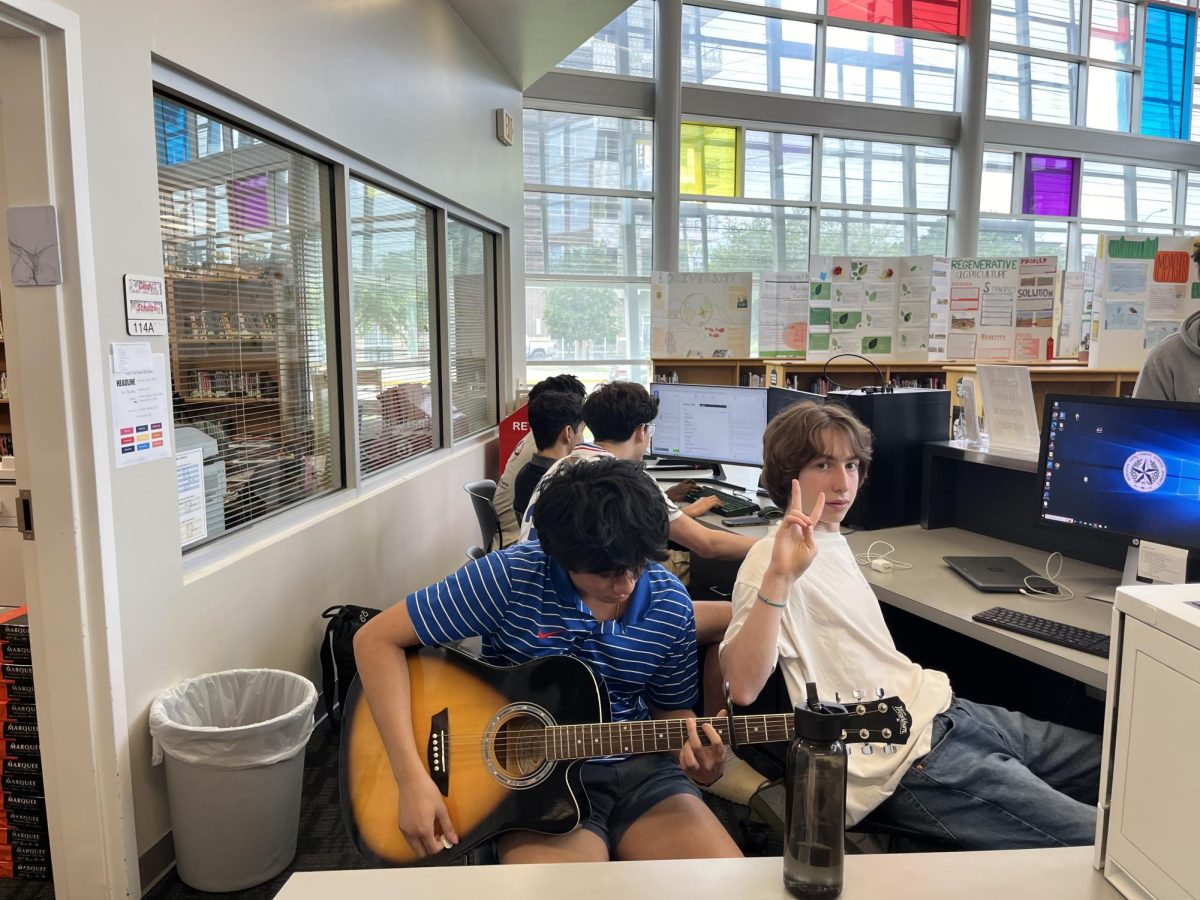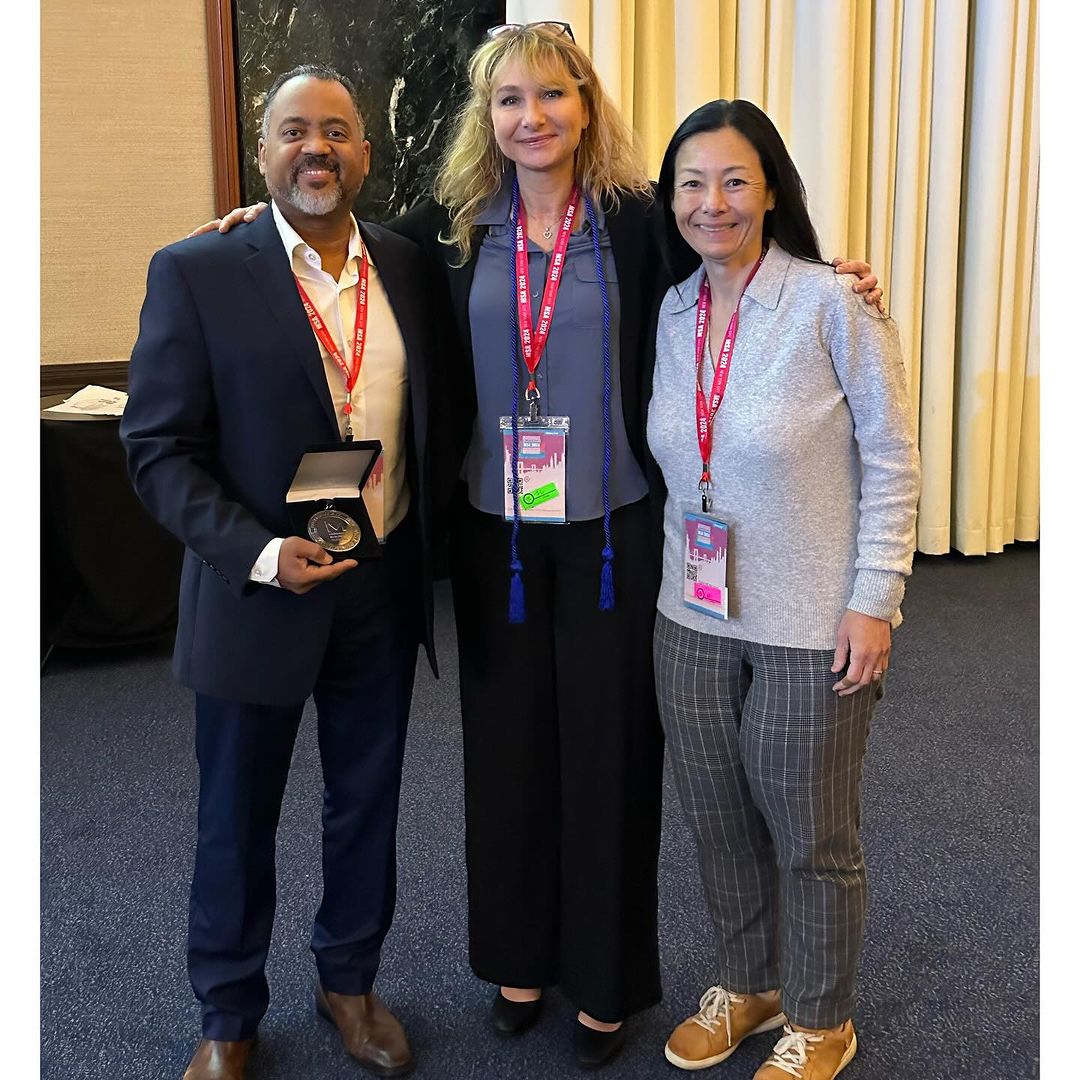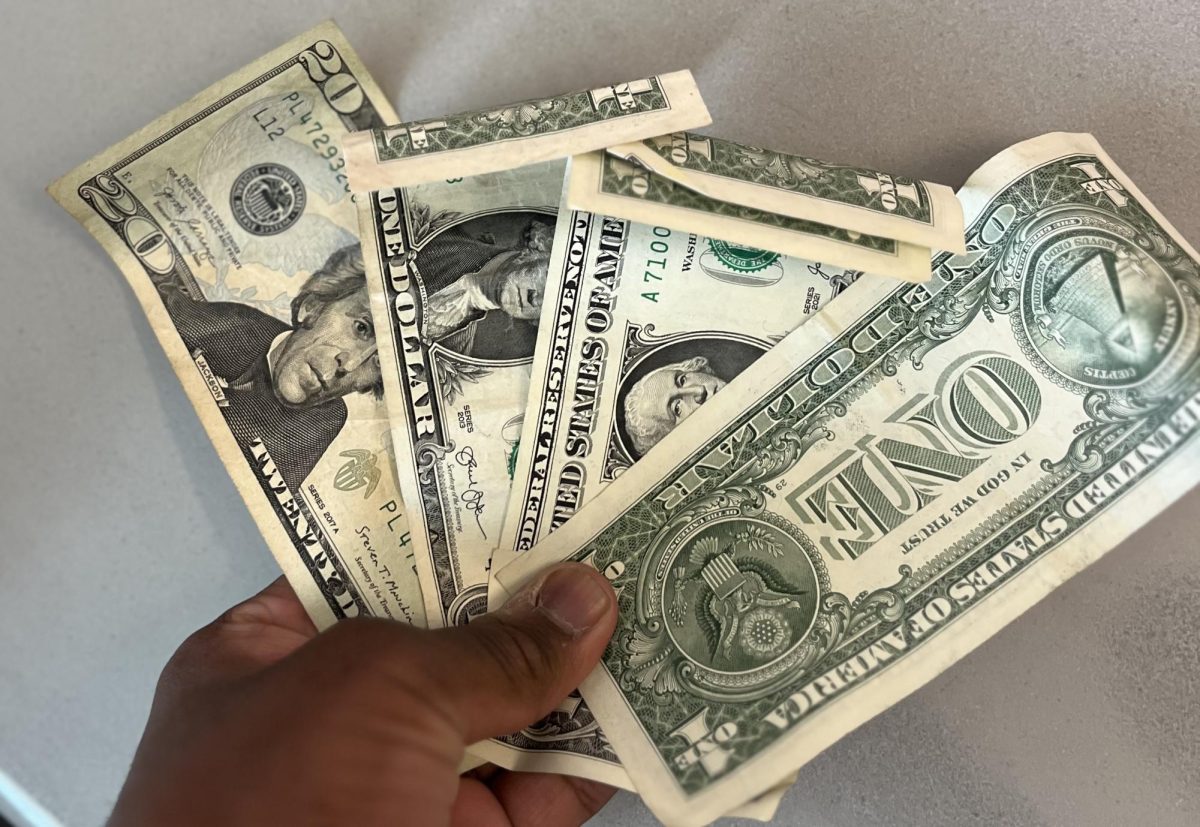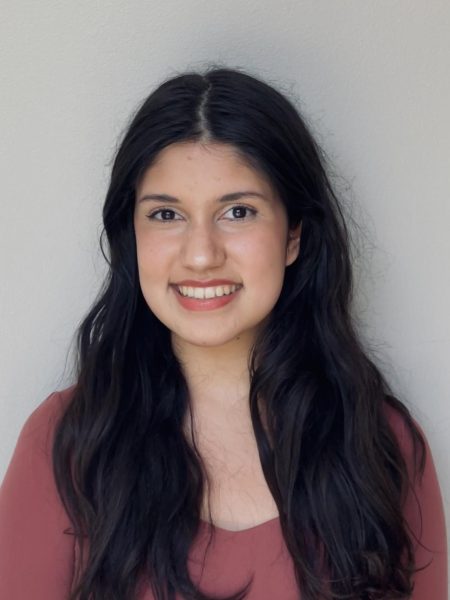The second Thursday of every month brings together a community of parents, teachers, activists, and most importantly — HISD board members. Located in the Hattie Mae White building, around 15 minutes away from CVHS, these gatherings often feature discussions and speeches.
Any civilian has a chance to give a short speech (typically one minute or less) addressing concerns or points of communication regarding HISD policies. These speeches are presented to the HISD board of managers which directly control and influence the policies within the district.
So it seems as if one were to say the ‘right’ thing in their speeches to the board members, things could change in HISD… right?
“[Students] have a lot more grievances in their speeches and are more calculated and so they can have an affect on the board of trustees,” says Layla Chowdhury, a junior who attended the most recent HISD board meeting.
Students at CVHS share a range of opinions regarding teachers and administration. Upstream News conducted a survey, and the results showed that most students agree that the adults at Carnegie do care about their opinions.
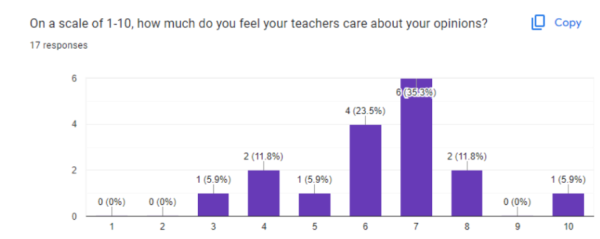
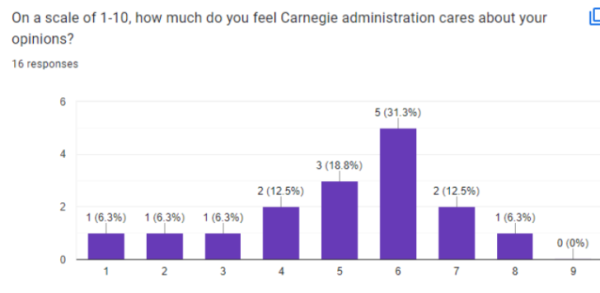
However, when surveyed on HISD leadership, the results were vastly different.
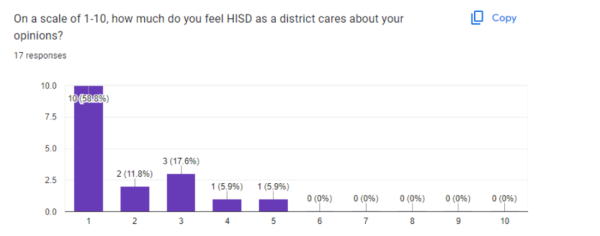
All participants in the survey had ranked the care of HISD as a district a 5 or less.
“At the end of the day, if you have thousands of people saying ‘you are making a stupid decision’ and ‘you’re affecting the lives of other people,’ and you don’t choose to listen, you’re telling all of these people that their voice does not matter,” says CVHS Senior Addison Claridge.
Even though Addison is a senior, she is still deeply invested in the HISD system as a whole, having both underclassmen friends and a brother who will remain in the system for a few more years.
However, there is one thing many seniors can make a difference: voting.
2024’s primary election is March 5. 18-year-old students who have registered to vote can have a real voice in our electoral system, and this is the first year many are doing so.
“We are going to be the ones growing up with [government] policies,” Claridge says. “I have met politicians that say they really do want to hear from a student’s perspective.”
Even if you’re not eligible to vote, change is within reach.
Junior Hira Malik was able to witness the effects of speechwriting and attending board meetings within HISD. Two years ago, she attended a board meeting that was to determine the status of whether or not a PSI (Preparing Students for Independence) program at T. H. Rogers Middle school would be kept. Hira, along with other former T. H. Rogers alumni and parents each gave short speeches at a board meeting and talked eye-to-eye with the decision-makers.
“I was approached by [former] trustee Elizabeth Santos afterwards, and she was applauding us students for coming out. She told us that students don’t normally come out to these board meetings,” said Malik. “So that really made an impact in their eventual decision to keep the PSI students at Rogers.”
So, why don’t more students attend board meetings? Probably because of the various barriers impairing students from Hattie Mae White.
For one, all board meetings are held on Thursdays, the day before testing days for most students in HISD
“[Hattie Mae White is on] the other side of the city for me. So I would have to drive all the way through there at rush hour, take hours out of my night when I could be studying for tests on Friday,” says Claridge.
Additionally, the only time to sign up for board meetings is in a 24-hour window on the Tuesday before the meeting. One must submit a physical copy of one’s information to speak, as well as email it to HISD leadership.
After braving the rush hour traffic, students, parents and teachers are crowded into a conference room for hours on a weeknight.
So, what is a more accessible way for students to use their voices and express their opinions?
Community Voices for Public Education has a solution.
Community Voices, or CVPE, is a non-profit organization that focuses on getting young people involved in educational decisions, especially in Texas. CVPE has not only fought the takeover, but they have especially attempted to make information available for students, as knowledge is power.
“The more ways that we can increase awareness is through clubs like CVPE… I think that is how we can get more students involved with board meetings. We can also inform students about problems because a lot of students complain, you know, but they don’t actually know that they can do something about it, “ said Malik.
In short, your voice has power. You are allowed to speak, vote, and address problems within our community. If not for yourself, it is for all of us.


